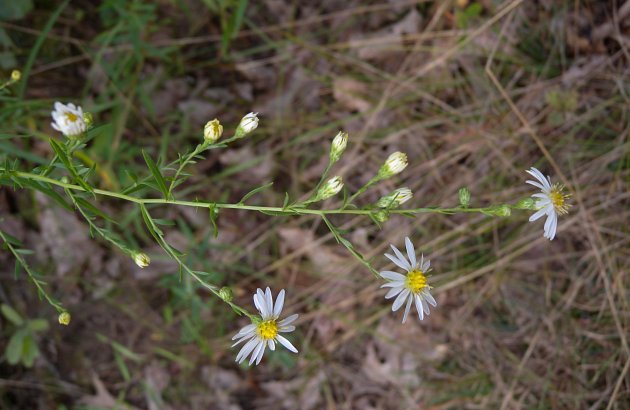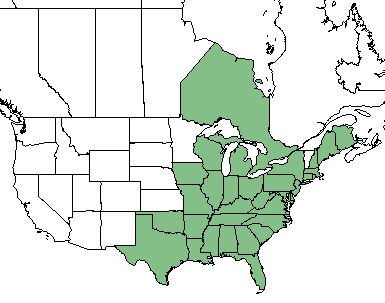Difference between revisions of "Symphyotrichum dumosum"
m |
|||
| Line 30: | Line 30: | ||
==Ecology== | ==Ecology== | ||
===Habitat=== <!--Natural communities, human disturbed habitats, topography, hydrology, soils, light, fire regime requirements for removal of competition, etc.--> | ===Habitat=== <!--Natural communities, human disturbed habitats, topography, hydrology, soils, light, fire regime requirements for removal of competition, etc.--> | ||
| − | ''S. dumosum'' can be found in old fields, disturbed areas, pastures, woodlands, glades.<ref name="Weakley 2015"/> | + | ''S. dumosum'' can be found in old fields, disturbed areas, pastures, woodlands, glades.<ref name="Weakley 2015"/> While widely found in the southern extent of its range, it is restricted to shorelines in the northern portion of its range.<ref name="Ladybird"/> |
===Phenology=== <!--Timing off flowering, fruiting, seed dispersal, and environmental triggers. Cite PanFlora website if appropriate: http://www.gilnelson.com/PanFlora/ --> | ===Phenology=== <!--Timing off flowering, fruiting, seed dispersal, and environmental triggers. Cite PanFlora website if appropriate: http://www.gilnelson.com/PanFlora/ --> | ||
Revision as of 19:35, 12 January 2018
| Symphyotrichum dumosum | |
|---|---|

| |
| Photo by John Hilty hosted at IllinoisWildflowers.info | |
| Scientific classification | |
| Kingdom: | Plantae |
| Division: | Magnoliophyta - Flowering plants |
| Class: | Magnoliopsida - Dicots |
| Order: | Asterales |
| Family: | Asteraceae |
| Genus: | Symphyotrichum |
| Species: | S. dumosum |
| Binomial name | |
| Symphyotrichum dumosum (L.) G.L. Nesom | |

| |
| Natural range of Symphyotrichum dumosum from USDA NRCS Plants Database. | |
Common Name(s): long-stalked aster;[1] rice button aster[2]
Contents
Taxonomic Notes
Varieties: S. dumosum var. dumosum; S. dumosum var. gracilipes; S. dumosum var. pergracile; S. dumosum var. strictior; S. dumosum var. subulifolium[1][2]
Description
Symphyotrichum dumosum is a dioecious perennial forb/herb.[2] The plant is stiff with leafy branches possessing numerous flower heads. Flowers consist of white to pale lavender rays with a yellow to brown central disk.[3]
Distribution
S. dumosum occurs from New Brunswick and Maine, south to Florida, westward to Texas and Oklahoma, and northeast inland to Wisconsin, Michigan and Ontario Canada.[2]
Ecology
Habitat
S. dumosum can be found in old fields, disturbed areas, pastures, woodlands, glades.[1] While widely found in the southern extent of its range, it is restricted to shorelines in the northern portion of its range.[3]
Phenology
Flowering occurs in late August through October,[1] although reports of flowering exist for several months throughout the year.[4]
Conservation and Management
Cultivation and restoration
Photo Gallery
References and notes
- ↑ 1.0 1.1 1.2 1.3 Weakley AS (2015) Flora of the Southern and Mid-Atlantic States. Chapel Hill, NC: University of North Carolina Herbarium.
- ↑ 2.0 2.1 2.2 2.3 USDA NRCS (2016) The PLANTS Database (http://plants.usda.gov, 12 January 2018). National Plant Data Team, Greensboro, NC 27401-4901 USA.
- ↑ 3.0 3.1 Cite error: Invalid
<ref>tag; no text was provided for refs namedLadybird - ↑ Nelson G (12 January 2018) PanFlora. Retrieved from gilnelson.com/PanFlora/